HezbollahLand: The Middle East Writ Large
We wind our way up, and up, and up, along a narrow road through stark and beautiful moutains in the hinterlands of South Lebanon, within Katyusha range of the Israeli border.
Brown signs mark the way. “Tourism Landmark of the Resistance.”
Our destination? Mleeta, AKA HezbollahLand.
Which is, even in this beautiful, strange, disturbing country, one of the most peculiar and powerful places I’ve been.
Even though I know this area is safe, I grew up in the 80s, when Hezbollah – and, for that matter, the PLO – held similar bogeyman status in the West to that Al Qaida has now (and, for the record, Saddam Hussein was the good guy).
So it feels intimidating. Or, rather transgressive.
More transgressive than unsafe or risky.
Just as in twenty years time, when one heads into the Al Qaida strongholds of the Middle East, when a new bogeyman has come along and Al Qaida is, like Hezbollah, an extremist fixture rather than the Great Satan, that will feel transgressive and a little scary.
Winding through the starkly beautiful landscape, we acquire a child hitcher. He wants to go to HezbollahLand, too.
Whatevs.
I’ve been avoiding giving lifts to adult men in Lebanon, even when I’ve asked for directions and they’ve volunteered to hop in the car and show me the way (so, clearly not carjackers, or they’d be in the vehicle with a gun in my head before I batted an eyelid).
This is because, while my gut has, on every occasion, said, “Nice guy, wants a lift, keen to help,” my head has said, “Woman plus child in car plus strange man = not good.”
In fact, when the kid’s dad asks me in Arabic to take his kid, I pretend not to understand.
Then he tries again in French, and I’m shafted.
And off we squeal, up this winding mountain road that has made my ears pop five or six times already, agonisingly slowly round perilous corners (perilous sometimes because only partially shielded, often because of folk overtaking on blind bends), and up, up, up into the sky towards HezbollahLand.
Where we pull into a huge, theme-park style car park, perched, like the rest of the site, on the top of a mountain with views over mountain upon mountain upon mountain, surrounded by angular, modernist edifices that, but for their shoddy construction – sorry, Hezbollah! – would not seem out of place in Paris or Bilbao.
And… it’s another wow moment.
There’s a giant modernist circle full of zen gardens of rocks and crumpled tanks and gun turrets, and howitzers.
Stark, beautiful, slightly kitschy, brutalist, fascistic and – particularly with the flower gardens planted around it – incredibly Lebanese.
“Wow!” says Z.
“Will you look at that?” I say.
“Hom, hom!” says the kid (who is in fifth grade). “Très jolie!”
Oh b*gger, I think.
We’ve not just got ourselves an incompetent guide – our first in Lebanon.
BUT I’ve driven him here, and I’m guessing I’m dropping him home, and I’m 99% certain he’s going to want bakhsheesh.
We really are back in the Middle East.
“Oui,” I say, amazed that I’ve found a Lebanese who speaks worse French than I do, even if he IS only ten. “Oui, c’est très jolie.”
And then I see the helmets…
Now, Lebanese history, in particular the last few decades, does not lend itself to easy summary. Although Lebanon has had its own identity since the time of the pyramids, under French occupation Lebanon and Syria were one – and there are plenty of forces within Syria that believe this should hold today.
Lebanon has always been diverse: its 18 different sects have long histories here. And, as one of the more densely populated countries in the world, the sects all rub up against each other and major on that kind of internecine hatred that only very similar religions seem to muster.
In an attempt to keep a lid on the sectarianism, the government was set up so that members of specific sects held specific positions. It didn’t work. In the mid-70s it exploded into a savage civil war.
A few years later, around the time of the Iranian Revolution – the time when another of the Middle East’s most fabulously laid back capitals subsided into a welter of internecine strife and hyper-religiosity – the ayatollahs set up and backed a Shia militant organisation.
Its name? Hezbollah, AKA “the party of god”.
By 1982, Israel was in Lebanon, and at war. The US supplied arms to Israel, Russia to Syria. In Lebanon, Israel supplied and funded the South Lebanese Army; Syria supplied and funded Hezbollah.
The war ground on for over two decades, then erupted again in 2006 for a period of a month.
Now, Hezbollah run a chunk of Lebanon, providing everything from hospitals to telecoms for the Shia.
And, but for one spectacular episode a couple of years ago when Hezbollah effectively invaded Beirut – the Lebanese government had asked them to give up their phone lines and go on the national grid – they stay within their territory.
But as they have more weapons, more money and a stronger military than the Lebanese state, if they feel like it – and many Lebanese are worried about this at the moment – they could do the same thing any time again.
Anywise… Back to the helmets.
Now, everything on display in this section of Mleeta was, pretty much, captured from the Israelis.
And, y’know, we’ve seen a lot of f*cked up tanks. That doesn’t shock me.
The howitzers with roses growing round them? That doesn’t shock me.
The Lebanese do this. They put flowers everywhere, particularly on the ugly stuff like razor wire.
But the big piece of camouflage netting full of helmets and boots.
THAT’s a gutpunch.
“Z,” I say. “Where do you think the helmets and boots came from?”
“Dead Israelis,” he says.
“Yep,” I say. “Every helmet in there protected some mother’s son.”
It strikes me really hard, the helmet-taking.
It’s like trophy-taking. Not too many years ago, they’d have had heads and hands there.
Did I mention that one of Hezbollah’s aims is to eliminate the “Jewish state”?
Yep. Still, today.
As Z says, “Well, they might as well give up on that one while America’s around. When China’s the superpower, they might have a chance.”
Now, chuck a stone over your shoulder in any Middle Eastern city and talk honestly with almost anyone – Christian or Muslim — and they’ll say, “There won’t be peace in the region until the Israelis have gone.”
In which they are probably right.
But I find the general optimism that everything will be flowers and roses and little fluffy kittens should that occur quite utterly bizarre.
Frankly, it’s all very well blaming “the Jews”. Which Hezbollah does, often.
But in Libya, Syria and, at the moment, parts of northern Lebanon, it is different sects of Islam that are fighting each other like the proverbial cats in sacks.
And that is not Israel’s fault. That is internal, intra-Muslim strife fuelled by regional powerbrokers, all of them Islamic, jostling for position.
Which is not to say that Israel’s helping. I love Israel. I have Israeli friends.
But, from an Arab perspective, the Israelites flourished in the Middle East and disappeared from the Middle East just like the Nabateans, the Edomites, the Canaanites – a long, long time ago, and who gives a monkey’s if they kept their culture, their religion and their language, and want their holy places back?
“Hom! Hom! Trés jolie!” says the kid, beckoning us onwards into a tunnel of camouflage netting that winds through a grove of olives and acacias.
We wander past tableau after tableau of Hezbollah fighters in action — lord knows, the Lebanese love their mannequins.
Sniper positions. Machine gun nests. Rocket units. Medical units. And, of course, “Martyrdom Choosers”.
“What do you think that means, Z?” I ask, reading off the trilingual label. “’Martyrdom choosers?’”
“Kamikaze,” he says.
“Or?” I say.
“I’m not going to say that here and I don’t think you should either.”
Quite. But, here it is, a Hezbollah suicide squad, in all its glory, mocked up on the hilltop amid the trees.
Now, martyrdom is prized in the Middle East. The family of a martyr can expect to revel in glory for the rest of their days, and woe betide anyone who removes graffiti commemorating a martyr. It is almost better to be a dead hero than a live one in these parts.
And, lo, we pass a site where a fighter passed from warrior to martyr. The kid makes me repeat after him what I think is a prayer for the dead, Islam’s answer to the Kaddish.
I do it. I feel uncomfortable with it, but I do it.
We descend into a bunker, buried deep into the rock, and effectively invisible. A radio is blasting speeches by Hezbollah Secretary General Abbas Al-Musawi, also a martyr, since he was assassinated by Israel in 1992.
“Abbas,” says the kid. “Abbas. Secretaire Abbas! Hom! Hom! Abbas Al-Musawi! Abbas!”
This man, this religio-political operator-cum-general, is his Churchill, his war hero – yet also his martyr, his spiritual leader, close to a saint. Lest we forget, Hezbollah is the party of god, and the kid will not get tired of listening to the voice of god’s emissary.
Every corner of this bunker, with its electric lighting and its prayer rooms seems to have been used at one time or another by the great man.
The kid mimes again what weapons are used for. Z, who wants to read, absorb and reflect, and knows one end of a rocket from another, THANK YOU VERY MUCH, is silently livid.
Not that you’d be able to tell.
We come to an open grave. It’s a spot sacred to another martyr. He was blinded, during the fighting, but before that had experienced a spiritual awakening.
Or, as a Western shrink might perhaps say, “Was evincing signs of severe post-traumatic stress disorder, in the form of morbid depression and religious mania. Desperately needed time out of combat.”
But we’re in HezbollahLand. He wasn’t going crazy. He was drawing closer to god.
This comrade’s actions are beyond heroic. Before he was blinded, he dug himself a grave in the hilltop, to which he would go alone to pray and contemplate many times during the day.
After his blinding, he returned here and, without assistance, despite the savagely steep rocky hillside, made his way here to his grave – yea, lo!, even though he had not eyes to see.
And he passed, silently, to a mystic union with his god, the god of his party of god, Hezbollah.
Z and I read the text. The kid babbles away at us in Arabic with the odd word of French. I reply in French with the odd word of Arabic.
Z and I exchange glances. This is, again, not something we discuss here.
More bunkers, more weaponry, howitzers blooming among manicured gardens like alien flowers, complete with signs in the earth before them.
At 60,000 square metres, the scale of the site is awe-inspiring. If numbing.
Each time we see a weapon, the kid says, “Hom, hom!”, makes shooting noises and babbles in Arabic about killing Israelis, boom, boom, boom!
We ascend to a square where the victory speech of Hasan Nasrallah, the current secretary-general (you can buy Nasrallah themed gifts at the gift shop, should you fancy being refused admission to Israel at the border) blasts out, accompanied by a translation of the highlights.
We read and listen, while the kid babbles about Nasrallah.
The kid taps me for money. I pretend not to understand his Arabic. Then he pulls together some French and I give him 1000 Lebanese to buy himself a Coke, largely because I’m hoping we’ll get rid of him that way.
And then we ascend to a circle at the top of the hill, where there’s a monument, with yet more bombastic text, at which Z stares in horror for several minutes before we make a break for it.
We drop the kid back at the turnoff for his house and feel, finally, free to speak.
“Well, Mum,” says Z, words flooding out all of a sudden. “I think that was DISGUSTING. I think it’s the most disgusting, horrible place I’ve been to. That kid is TOTALLY brainwashed. He’s got ABSOLUTELY no idea. That’s all the site is, brainwashing, to make him believe that Hezbollah are the saviours of all humanity.”
“Did it say that?” I ask, vaguely, negotiating a particularly hair-raising hairpin bend. “I know they were banging on about being saviours of Lebanon.”
“YES, Mum,” he says. “That’s EXACTLY what they said. They banged on about being saviours of ALL HUMANITY, about fighting for THE WORLD. Which means, if you think about it, that they’re presenting the Israelis, and, more to the point, the Jews, as subhuman, as enemies of the WHOLE WORLD. Just like the Nazis did.”
“Yeah,” I say. I hadn’t picked up on that. But he’s spot on. “I guess you’re right.”
“I feel sorry for the kid,” Z says. “He’s never going to get another perspective on things. Are Hezbollah holocaust deniers?”
“I don’t know,” I say. We’ve chatted to a number of Islamists of various shapes and sizes in Egypt, yet views that struck me as quite extreme in Egypt seem, well, fairly zen out here in Hezbollah land. “But they’re backed by Iran, so they probably do deny the holocaust. And, quite possibly, they’re into the Protocols of Zion as well.”
“What are the Protocols of Zion?” he asks.
“A bit like the blood libel in the Middle Ages,” I say. “A fake document about a global Jewish conspiracy.”
Z nods. After Hezbollahland, he’s hard to shock.
I stop in a small town to ask directions. The signs to the “Tourist Landmark of the Resistance” work all very well going out, but there are no signs indicating the route back to the highway to Tyre and, despite more than two years’ travelling, I still have absolutely zero sense of direction.
Further, I need to be on the highway fastish, because it’s getting late. Lebanese traffic is challenging enough without contending with maniacs driving lightless after dark, or the risk of ending up at the Syrian or Israeli border after taking a wrong turn in the mountains.
I’m also pretty sure that this is one of the parts of Lebanon the FCO advises against visiting, which means our travel insurance won’t cover us if some prick drives our little car off a mountain.
“I’m going towards the autoroute,” says the kid I ask, in French. “Is there a space in the car? I can direct you.”
Sod it, I think. He’s 19, tops, with his school backpack over his shoulder. He’s a nice kid.
And, bizarrely, I feel safe in Lebanon.
Or, rather, I feel safe among the Lebanese. And safe in the right bits of Lebanon.
“Sure,” I say, sweeping salt and vinegar crisp packets and water bottles off the shotgun seat and onto the floor. “Hop in.”
And off we head. Towards the highway. Through town after town packed with Hezbollah posters and into the growing dark.

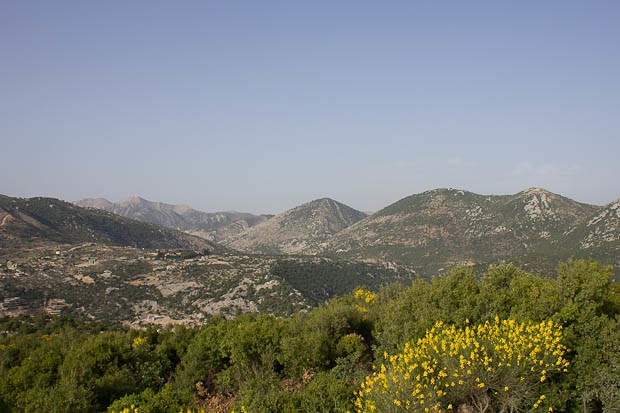
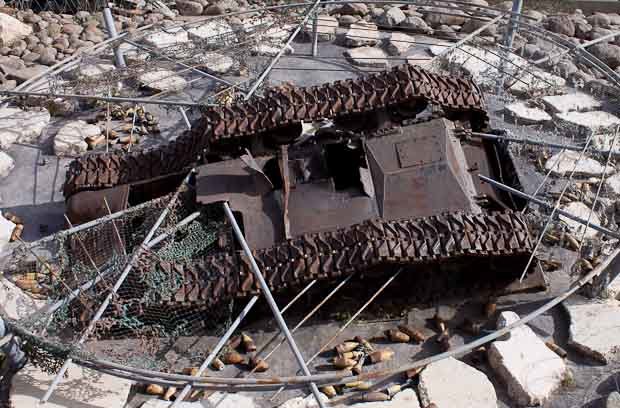
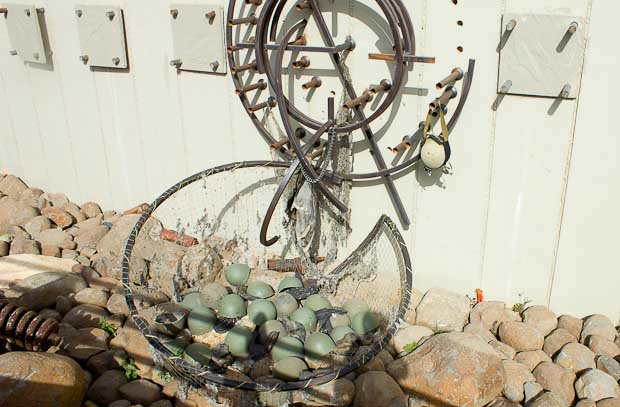
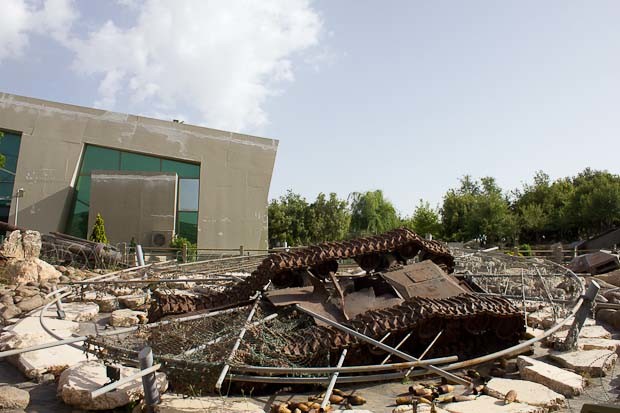
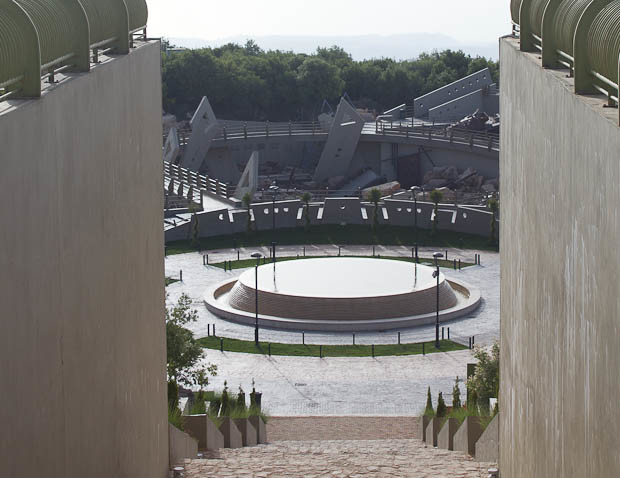
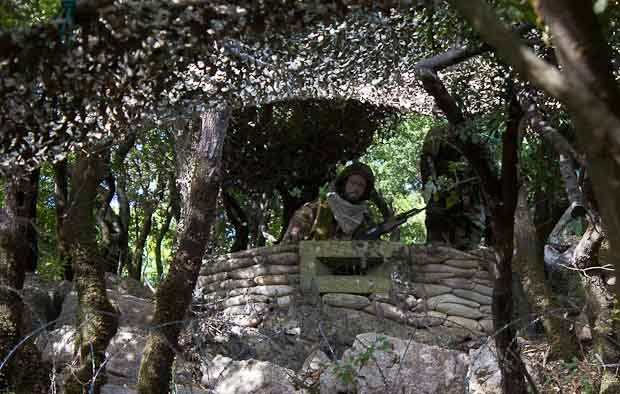
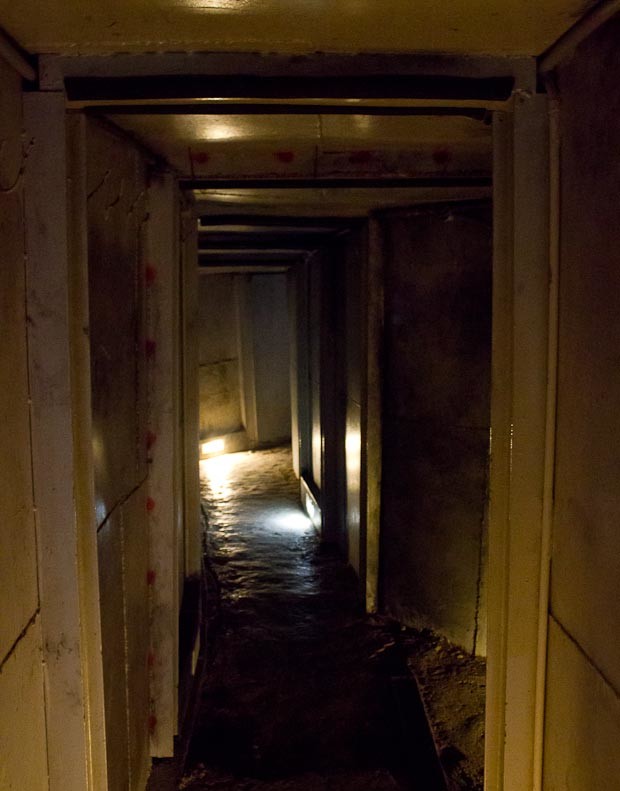
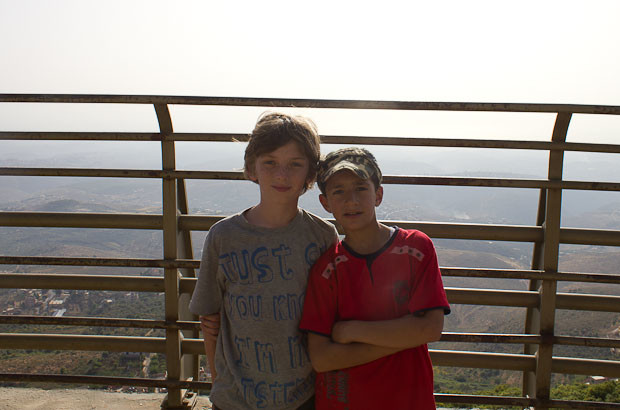
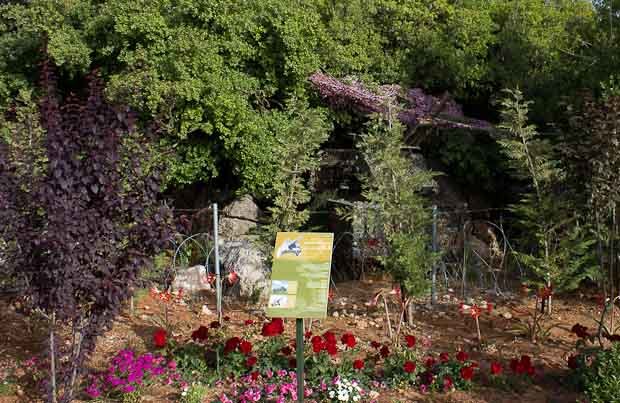
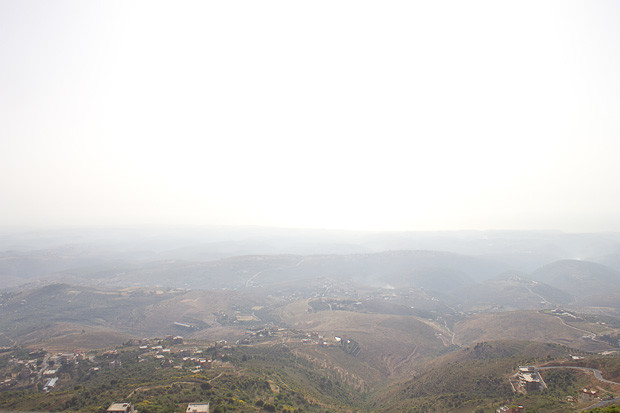
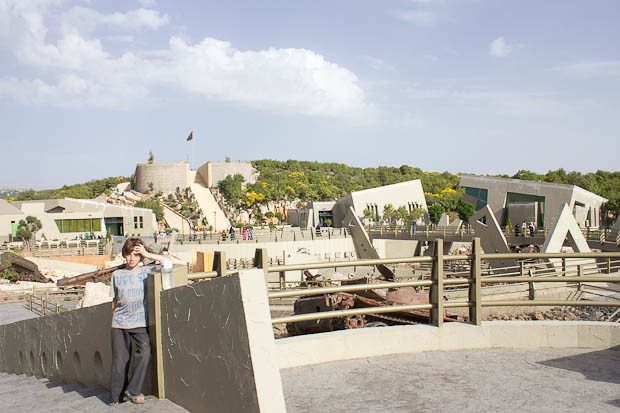
I don’t even know what to say except that I almost wish you weren’t quite so good a writer. I’m fairly sure I was happier without knowing all of that and you’ve painted a disturbingly clear picture…
It’s a very, very, very strange place. The really sad thing is that plenty of Beirutis and Tel Avivers are friends: but can only see each other OUTSIDE their respective countries.
The educated, liberal, cosmopolitan population of the two countries has so much in common. And then, in both cases, there are the maniacs. Because, believe you me, some of the ultra-Orthodox and some secular settlers can be really quite scary too.
How sad, sad, sad, how extremism and war brings out the worst in people, and the effect is for generations to come, i’ve seen it both sides of the border and it is equally bad for both countries.
I liked what u said about feeling safe, it brought back memories, people there are so resilient and welcoming and eager to share with you, you rarely fell scared.
Fascinating, brutal, experience and enriching nonetheless.
I find the Lebanese utterly, utterly charming and kind and lovely, and feel very welcome here. Will be extremely and genuinely sad to leave.
“Every helmet in there protected some mother’s son.”
Well, there are people from Hezbollah as well that have died in that war of helmet gathering. I am not by any chance defending Hezbollah, I am just stating the obvious fact that it is a lose-lose situation. Though Hezbollah seem or are extremists and suiciders etc etc, they too were mother’s sons 🙂
However, I still believe that it is very bizarre to have a “park” like this one…the electronic war house in Cairo was bizarre enough for me (which only shows videos and cartoons of the Egyptian-Israeli war), but Hezbollah seems to have taken it to a totally new level 😀
Thanks for your comment, Mina, which has made me delve into what my problem was with the helmets, and why I’m more emotionally shocked by that than by the Hezbollah fighter who dug his own grave and transcended in it.
I think the problem there is that it smacks of trophy-taking, and desecration of the dead: the mental picture that came into my head was of these helmets and boots being taken from dead soldiers, or body parts of dead soldiers, and saved as trophies.
And, it’s true, I know plenty of Israelis who’ve done military service, some in combat units, so there’s an emotional response to that too — that could be my friend! — whereas I’ve never had an emotional relationship of any kind with a Hezbollah fighter.
Which is not a comment on the legitimacy or otherwise of Israeli involvement in Lebanon, or, for that matter, the legitimacy or otherwise of the state of Israel. It’s just that emotionally my sympathies go to the Israelis, and I see Hezbollah as the other.
But, you’re right. All those kids on BOTH sides were someone’s sons, fighting for their beliefs and their people. So thanks for the corrective.
I’m shocked at this, and curious at why I am shocked, really…..
I think one thing, Dalene, is that it’s so BIG and so touristic. They’re planning to put a waterpark in near it to capitalise on the tourism element. And another thing, I guess, from our age range, is that Hezbollah used to be considered like Al Qaida, back in the day…
I am shocked, too – and also, very much in Awe of Z’s maturity and comments. and also, your ability to deal kindly with the kid. uff da.
Thank you, Jessie. I’m not sure we dealt with him that kindly, but, fundamentally, he’s a kid… Who he’ll grow up to be, of course, I don’t know…
Dear Theodora I have enjoyed your blogs throughtout your travel trip through lovely Lebanon. It was very descriptive and a nice read.However, I cant help but notice something that conceptually sounds just wrong.
As I understood you found it insensible to come across displayed reminders of the enforced wars that were part of this country’s history and sorrow, especially those trespassers helmets which were picked up on Lebanese soil, history assures. With all due respect, hearing you shocked over that is on the contrary, insensible to the people you have been enjoying your stay amid their hospitality. As I recall, resistance has risen in this country which had no record of hostility only to defend its land and protect its helpless people, against a state imported and deployed in the region over night, backed up by major power states and by a well equipped billions worth military force.
I’d suggest you take the chance and opportunity to have a minimal insight into the afflications caused by such a marking point in the history of the country/region. 82’s Invasion, 2 decades southern occupation of country, thousands kidnaps and captives, hundred thousands inhabitants deporations, Qana massacres -twice, 1993/1996/2006 wars launched with one sided massive destruction and losses of civilian lives.
I understand where your stance on the matter comes from and to be honest Im not the least shocked. Unsurprisingly, I find, in this case, these very words of yours fitting here too well “It is disgusting..they are Brainwashed..I feel sorry .. never going to get another perspective on things” Is it any different in your case? I recommend you take the time to dwell into historical facts using these aforementioned keywords as your guidline.
Resistance is not unlikely in a land whos people are known for their resislience and patriotism. If there hasnt been Hezbollah, there woud have been another. Freedom fighters dont await anyones acknowledgement and care less about random uneducated judgments, had a thing for sure, if it had not been for them, you would be calling the south Israel now.
Had to let these off my chest, I hope you enjoy the rest of your stay. Try to attend the festivals going on around different countries historic venues. BeitEddine is one, Baalback is a must too. You can find full festivals schedules online. Anyhow I dont mean to sound offensive if I did, Regards.
Hi Robert,
Thanks for your perspective and taking the time to comment. You don’t sound offensive, and I’m not offended by it, although I’d point out that many Lebanese I spoke with, both Christian and Muslim, were surprised I went to Mleeta and many were not fans of Hezbollah.
I also hope you saw my post about Masser El Chouf, which mentions the Sabra and Shatila massacres in the context of another massacre. I think the involvement of all outside forces in the civil war was horrible and am aware that terrible things were done during the Israeli invasion.
Now, I’m not shocked per se by the existence of a museum commemorating a war and celebrating freedom fighters — although I’d point out that Hezbollah was not entirely homegrown. I also neglected to point out the positive work that Hezbollah do for their people in the areas that control.
The element that shocked me about it was the ongoing hatred to Israel and the ongoing dedication to wiping a country off the map, and what shocked my son was that sense of a victory over Israel being a victory for all humanity, the portrayal of Israelis (qua the people, qua the state) as an eternal enemy.
And the focus on martyrdom, in particular the suicide squads, was culturally shocking to me. We have posthumous medals in England, but no kamikaze/martyr tradition. Men who have been put in a situation where they sacrifice their lives to save others may well be made heroes, but our soldiers are sent into battle in the hope that they will come out alive.
So: it’s not the celebration of victory that shocked me, but the sense that there is no end to the conflict, that this is an eternal, ongoing, quasi-tribal hatred. Does that clarify things a little better?
Theodora
So you “agree” that “There won’t be peace in the region until the Israelis have gone.”. How do you justify expelling a nation from its land and how would you feel if someone made the same suggestion about your own nation?
Umm, no. I don’t “agree” with that statement. I say, “They’re probably right” and go onto propose that the Middle East, with or without Israel, is not likely to be a peaceful place, and explain various Middle EAst conflicts in which Israel has not been involved.
Y’know. Just read the piece again. It’s a lot more nuanced than that, which is one reason why I’ve also had criticism from Lebanese and Egyptians on this post.
On the plus side, if I’m catching flak from Lebanese, Egyptians and pro-Israelis on one post, I’m clearly doing something right.
On the down side… “How do you justify expelling a nation from its land?” I don’t know, Steve. How do you?
Wow-I didn’t know this existed. When you see stuff like this yourself it helps to understand why the people of a nation or sect behave the way they do.
The Middle East is such a complicated place. We felt that in Jerusalem, and then the Palestinian territory. No easy answers anywhere.
Quite. Some of these hatreds — Israelites versus Philistines = Israelis versus Palestinians, Bedouin versus Pharaohs = Bedouin versus Egyptian government — have been going on for thousands of years.
One of those pieces that leaves me with my mouth down! I’m not abreast on all of the conflict, but definitely curious. Well written, bravo!
Thank you. It’s a difficult one to keep abreast of, to be honest, but it’s some of the same tribal division problems they’re having in Syria, with extra religious conflict in the mix…
I’m glad that you payed jnoub (hizzbollah land as you claim :p ) … every part in lebanon posseses it’s unique charm … however regarding the lebanese-israeli war i think you were a bit unfair becuase it was the israelies who started the war and killed many lebanese citizens which flaired hizzbollah to take action … but i guess you had to be there and see both sides of the story .. I Hope you had fun .. and come back soon !!
Thank you! I loved Lebanon — one of my very favourite countries. And I do hope we get back again some time soon.